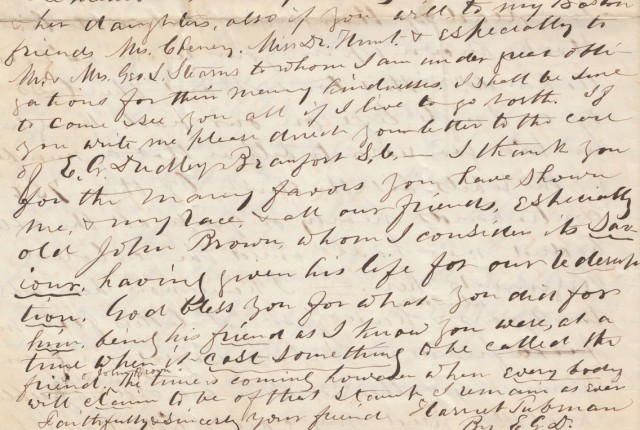
A generous award from the Pine Tree Foundation will enable approximately 1,000 online cataloging records to be created for manuscripts held by the Williams Andrews Clark Memorial Library. The material comprises ephemeral yet noteworthy pieces of writing that assist scholars in issues related to biography, artistic decisions, and contextualizing political and social events. Letters, notes, receipts, and documents that survive and find their way into a repository offer a private look into interpersonal relationships, dealings with editors and publishers, contemporary events, or transactions and encounters. Examples from the Clark’s holdings include an 1853 letter from Georgina Hogarth, sister-in-law and caretaker of Charles Dickens, indicating that she is writing for Dickens because he is “ill in bed” and describing at length his condition. There are several letters written to Lord Byron, including one from Sir Charles Eastlake, who has questions about the story of the Giaour, for which Eastlake is “putting together some of the scenery.” Letters from Joseph Haydn discuss his Third Sonata and how he has composed a brand new Cappriccio for the piano. A 1794 document from Alexander Hamilton indicates that he has “directed the Treasurer of the United States to remit . . . draughts on John Muir, Collector of Vienna Maryland to the amount of four thousand dollars”: $3,000 as payment on a loan and $1,000 for the “use of the Militia Army.” A note from English writer, actress, and publisher Eliza Haywood (1693–1756) states that she has received the sum of “two Pounds two Shillings” for her translation of Crébillon’s Le Sophia. There are eight items by John Dryden, including seven signed letters and a handwritten copy from 1673 of the prologue to his play Marriage à la mode. At the conclusion of the project in November 2016 researchers will be able to discover the manuscripts in UCLA’s online library catalog as well as WorldCat.
Image
Excerpt from a letter dated 30 June 1863 to Boston abolitionist Franklin Sanborn from Harriet Tubman

